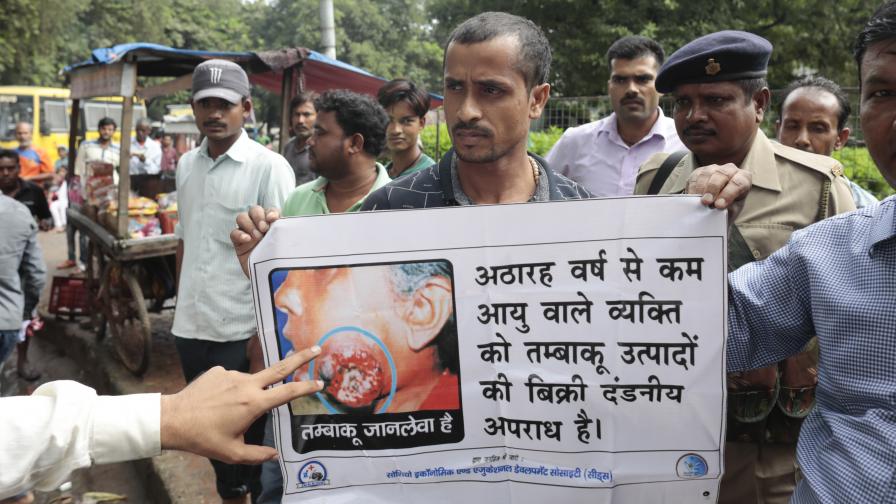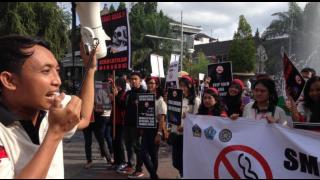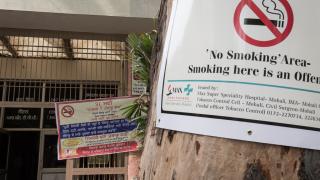
Effective tobacco control laws are passed by a legislative body to protect the public from the harms of tobacco use.
Tobacco control laws are passed by a legislative body to protect the public from the harms of tobacco use. Vital Strategies' goal is to advance the World Health Organization's Framework Convention on Tobacco Control (WHO FCTC) - an international health treaty - and a package of evidence-based measures proven to reduce tobacco use called MPOWER.
Implementation and enforcement
Effective implementation and enforcement of these policies is needed. Without it, people are not protected from the harms of tobacco, the achievements and resources invested in policy adoption are at risk of being lost and confidence in tobacco control is eroded.
Research
A research agenda should be developed in consultation with the government and stakeholders with the goal of improving compliance and enforcement of tobacco control laws. It should utilize the results of monitoring and evaluation to inform decisions and facilitate a cyclical improvement process for implementation.
The results of research can be used to create guidelines for enforcement and WHO FCTC Article 5.3, reports that protect policies from interference, and used as evidence to draft new or strengthen old legislation.
For example, the tobacco industry claimed catastrophic economic impact if 100% smoke-free legislation was implemented in bars and restaurants in NYC, prompting researchers to evaluate the economic impact of 100% smoke-free legislation.
Implementation Areas
Regulations
Issued by an executive authority or government regulatory agency, a regulation (or rule, order, ordinance or guideline) explains how to implement a specific law and its related penalties and sanctions.
Countering Industry Interference
Extreme vigilance is the only way to counter the tobacco industry’s attempts to interfere with and muddy public health policies.
Coordination and Planning
Multiple government agencies are frequently tasked with tobacco control law implementation and enforcement. Effective coordination and communication between them is key.
Stakeholder mobilization
Tobacco control law compliance depends on diverse stakeholders with both the capacity and commitment to effectively implement and enforce them.
Public communications
Public education campaigns enumerating the benefits of tobacco control legislation help build consensus and facilitate smooth implementation.
Enforcement Actions
Multiple agency coordination, stakeholder engagement with stakeholders, and strategy and planning activities are all critical components of enforcement.
Monitoring and Evaluation
A plan to assess progress and evaluate impact must precede implementation.
Compliance
Tobacco control law compliance increases the percentage of the population that is protected from tobacco harms.







